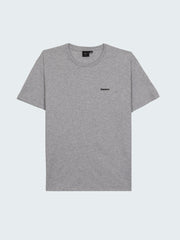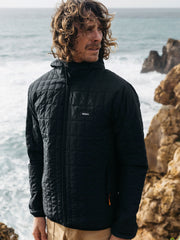Trying to make headway through the Valdivian temperate rain forest is impossible. A steep jungle trail with the crack of a shallow left on the reef below. Giant angiosperms and the scent of warm eucalyptus. Tsunami evacuation signs point straight uphill. A thousand logging trucks heading north, laden with trunks, to feed paper mills that in turn pollute rivers. Along the pan-am highway, a hundred miles of Monsanto arable land from hell. The trees are dead coloured, stricken by a grey-brown pesticide death in their roots and leaves. There are 30,000 hectares of GMO maize, soy and canola in Chile. A brown trout, fighting for his life, dies gasping, bludgeoned on the side of the rotting hulk of a fishing boat. There are no native salmonids here, which eases the guilt, but what is native now? At the mouth of the river a left cracks against the rocks, waiting for winter sand flow. 7,000 miles of coastline. Patagonia, I dreamed of abundance.
On the Ruta del fin de mundo, lichen hangs off the trees in thick green shrouds, evidence of a lack of pollution. Guanaco are surprisingly big up close. In the shadow of the needles a river of sparkling beauty, a giant yellow salmon hangs in torpor. He is dying. Moths paint the windshield in a way we have quite forgotten, all of our bugs are dead. Under the lighthouse, beyond the beach made up of a million shells, another left rumbles and spits. Senor Apollo barks outside the Quincho in the mornings. A thousand pink buoys bob in the fjords, the fish farms are Patagonia’s dirty secret. Effluent lines the creek. Chatwin wrote of the warlocks who controlled the island, the deliberately deformed invunche imprisoned in a cave and brought out to terrorise the local people. The illegal fishing vessels use cut-up Humboldt penguins and dolphins for bait to catch king crab. Of the 25 key fish species, 16 stocks are collapsed. Rusting fishing boats fill the fjords. Patagonia, I dreamed of abundance.
















































































